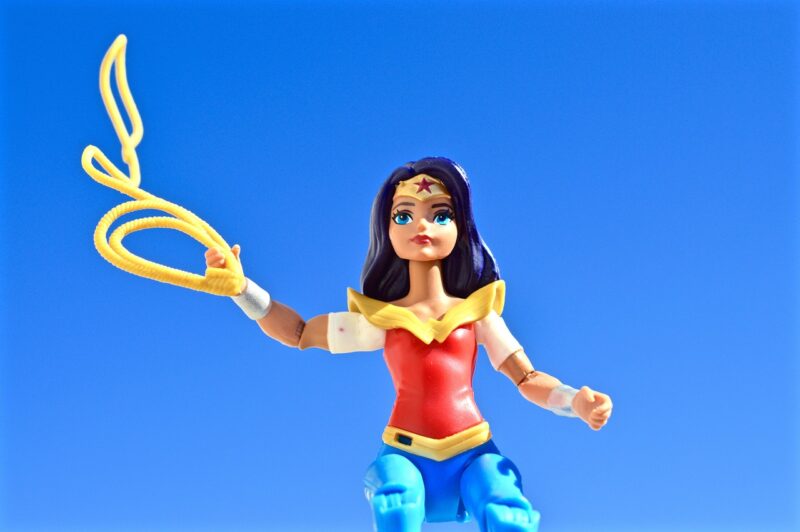The Ethics of Superpowers: How Comic Books Examine the Moral Complexities of Being a Hero
November 14, 2024

Comic books have long been a rich source of storytelling, capturing the imagination of readers across generations. Among their most fascinating themes is the exploration of ethics and morality surrounding superpowers. These tales of heroism often delve deep into the moral complexities faced by characters wielding extraordinary abilities, shedding light on what it means to be a hero in a world filled with grey areas.
1. The Genesis of Superheroes and Moral Philosophy
The birth of superhero comic books in the late 1930s brought forth not just larger-than-life characters but also significant moral questions. The iconic Superman, often regarded as the first superhero, was created as a response to the social issues of his time, including fascism and rampant injustices. This portrayal begs the question: when endowed with superhuman abilities, to what extent is it one’s responsibility to correct societal wrongs?
Creators began using these characters to reflect real-world moral philosophies, including utilitarianism and deontology. Utilitarianism advocates for actions that maximize overall happiness, while deontology focuses on adherence to moral norms regardless of outcomes. Comic book narratives often attend to this dichotomy, showcasing conflicts between heroes who follow either principle.
2. The Dangers of Absolute Power
A recurring theme in superhero tales is the notion that “with great power comes great responsibility.” However, the consequences of unbridled power are deftly illustrated through characters who abuse their abilities. Take the case of Supreme Lord, who starts with the best intentions but slowly morphs into a tyrannical figure as his power grows unchecked.
This archetype showcases a critical question: at what point does the hero become the villain? The slippery slope of power abuse challenges the morality of even the most well-intentioned characters, raising awareness about the delicate balance between authority and accountability. It also leads to fascinating story arcs that echo real-world politics and power dynamics.
3. The Role of Choice: Agency and Responsibility
Many superheroes grapple with the concept of choice. The ability to choose how to wield superpowers reflects the ethical dilemmas we face in everyday life. Characters like Spider-Man epitomize this struggle when faced with the consequences of their actions. Peter Parker’s famous mantra, “With great power comes great responsibility,” resonates throughout his journey as he battles personal and external conflicts.
The choice to use one’s powers for good, or to turn a blind eye to suffering, often weighs heavily on such characters. These narratives serve to illustrate not only the personal responsibility of individuals but the collective responsibility of society to hold each other accountable for their choices. The ethical ramifications of these decisions pervade the storylines, providing rich material for psychological exploration.
4. Anti-Heroes: The Complexity of Morality
The emergence of anti-heroes has further complicated the moral landscape of comic books. Characters like Deadpool and The Punisher embody a departure from traditional heroism, showcasing flawed individuals who often operate outside the bounds of conventional moral frameworks. Their actions raise provocative questions about what it means to be heroic in a world rife with corruption.
Anti-heroes highlight the notion that morality is not binary; being a hero is seldom a straightforward path. They operate in the grey, often pursuing personal vendettas that may lead to consequential outcomes. This portrayal compels readers to confront the moral ambiguity of their actions and reflect on the complexities of justice.
5. The Consequences of Choice: Justice vs. Vengeance
A central element in superhero narratives involves the choice between justice and vengeance. Characters often find themselves at a crossroads—whether to seek retribution for wrongs done or to pursue a path of justice that encompasses forgiveness and rehabilitation. Batman is a quintessential example of this struggle. Despite his traumatic past, he attempts to fight crime while adhering to a moral code that favors justice.
In contrast, other characters, like Wolverine, may lean towards retribution, enacting personal justice rather than working within the confines of the law. The exploration of these choices not only engages readers but also challenges them to consider their perspectives on justice in the real world, where the line between retribution and justice often blurs.
6. The Impact of Superheroes on Society: Reflection and Responsibility
Superheroes serve not just as mere entertainment but as mirrors reflecting societal values, fears, and ethical concerns. They inspire debates about morality, ethics, and how power should be wielded in society. Comic book creators often tackle current issues, from war and poverty to systemic injustice, using their characters as conduits for reflection and discussion.
Moreover, superheroes galvanize action among readers to confront injustices, encouraging activism and community engagement. The belief in the power of a hero to lift others and transcend personal limitations underscores an essential aspect of human connection and responsibility.
Conclusion: The Lasting Legacy of Ethical Exploration in Comics
The enduring popularity of comic books lies in their ability to fuse thrilling storylines with complex ethical dilemmas. The exploration of morality and the responsibilities that accompany superpowers allows readers to engage with challenging questions about heroism in their own lives. As society evolves, so too will the narratives surrounding superpowers—continually reflecting the moral complexities of an ever-changing world.
In an age where moral absolutes seem increasingly elusive, comic books stand as a reminder of the pressing ethics of choice, accountability, and the human condition itself. As we follow our favorite heroes into battle, we are inevitably led to confront our own values and beliefs, making the world of comic books not only entertaining but profoundly thought-provoking.







